Related Research Articles
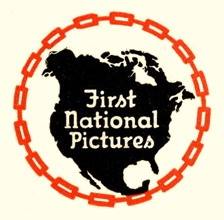
First National Pictures was an American motion picture production and distribution company. It was founded in 1917 as First National Exhibitors' Circuit, Inc., an association of independent theatre owners in the United States, and became the country's largest theater chain. Expanding from exhibiting movies to distributing them, the company reincorporated in 1919 as Associated First National Theatres, Inc., and Associated First National Pictures, Inc. In 1924 it expanded to become a motion picture production company as First National Pictures, Inc., and became an important studio in the film industry. In September 1928, control of First National passed to Warner Bros., into which it was completely absorbed on November 4, 1929. A number of Warner Bros. films were thereafter branded First National Pictures until July 1936, when First National Pictures, Inc., was dissolved.

Warner Bros. Entertainment Inc. is an American diversified multinational mass media and entertainment conglomerate headquartered at the Warner Bros. Studios complex in Burbank, California, and a subsidiary of AT&T's WarnerMedia through its Studios & Networks division. Founded in 1923 by brothers Harry, Albert, Sam, and Jack Warner, the company established itself as a leader in the American film industry before diversifying into animation, television, and video games, and is one of the "Big Five" major American film studios, as well as a member of the Motion Picture Association (MPA).

Casablanca is a 1942 American romantic drama film directed by Michael Curtiz, and starring Humphrey Bogart, Ingrid Bergman, and Paul Henreid. Filmed and set during World War II, it focuses on an American expatriate (Bogart) who must choose between his love for a woman (Bergman) and helping her and her husband (Henreid), a Czech resistance leader, escape from the Vichy-controlled city of Casablanca to continue his fight against the Germans. The screenplay is based on Everybody Comes to Rick's, an unproduced stage play by Murray Burnett and Joan Alison. The supporting cast features Claude Rains, Conrad Veidt, Sydney Greenstreet, Peter Lorre, and Dooley Wilson.

John Cooper Jr. was an American actor, television director, producer, and executive. He was a child actor who made the transition to an adult career. Cooper was the first child actor to receive an Oscar nomination. At age 9 he was the youngest performer to be nominated for an Academy Award for Best Actor, an honor that he received for the film Skippy (1931). For nearly 50 years, Cooper remained the youngest Oscar nominee in any category.
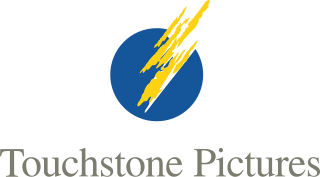
Touchstone Pictures was an American film distribution label of Walt Disney Studios Motion Pictures, created and owned by The Walt Disney Company. Feature films released under the Touchstone label were produced and financed by The Walt Disney Studios, and featured more mature themes targeted towards adult audiences than typical Disney releases. As such, Touchstone was merely a brand of the studio and did not exist as a distinct business operation.

Morgan Creek Entertainment is an American film production company that has released box-office hits including Young Guns, Dead Ringers, Major League, True Romance, Ace Ventura: Pet Detective, The Crush, Robin Hood: Prince of Thieves and The Last of the Mohicans. The studio was co-founded in 1988 by James Robinson and Joe Roth. Robinson leads the company as chairman and CEO. His two sons, Brian Robinson and David C. Robinson, run the day-to-day operations. The company name comes from Roth's favorite film, The Miracle of Morgan's Creek.

Outland is a 1981 British science fiction thriller film written and directed by Peter Hyams and starring Sean Connery, Peter Boyle, and Frances Sternhagen.
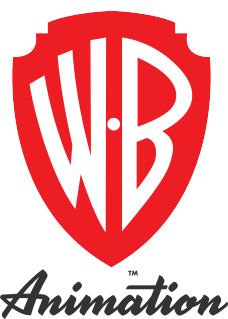
Warner Bros. Animation is an American animation studio owned by the Global Kids, Young Adults and Classics division of Warner Bros. Entertainment. The studio is closely associated with the Looney Tunes and Merrie Melodies characters, among others. The studio is the successor to Warner Bros. Cartoons, the studio which produced Looney Tunes and Merrie Melodies cartoon shorts from 1933 to 1963, and from 1967 to 1969. Warner reestablished its animation division in 1980 to produce Looney Tunes–related works.
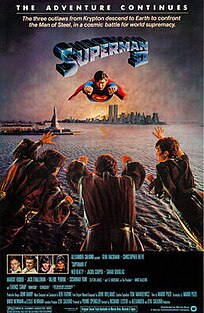
Superman II is a 1980 superhero film directed by Richard Lester and written by Mario Puzo and David and Leslie Newman from a story by Puzo based on the DC Comics character Superman. It is the second installment in the Superman film series and a sequel to Superman (1978). It stars Gene Hackman, Christopher Reeve, Terence Stamp, Ned Beatty, Sarah Douglas, Margot Kidder, and Jack O'Halloran. The film was released in Australia and mainland Europe on December 4, 1980, and in other countries throughout 1981. Selected premiere engagements of Superman II were presented in Megasound, a high-impact surround sound system similar to Sensurround.
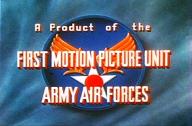
The 18th AAF Base Unit, originally known as the First Motion Picture Unit, Army Air Forces, was the primary film production unit of the U.S. Army Air Forces (AAF) during World War II, and was the first military unit made up entirely of professionals from the film industry. It produced more than 400 propaganda and training films, which were notable for being informative as well as entertaining. Films for which the unit is known include Resisting Enemy Interrogation, Memphis Belle: A Story of a Flying Fortress and The Last Bomb—all of which were released in theatres. Veteran actors such as Clark Gable, William Holden, Clayton Moore, Ronald Reagan, and DeForest Kelley, and directors such as John Sturges served with the 18th AAF Base Unit. The unit also produced training films and trained combat cameramen.
Aljean Meltsir Harmetz is an American journalist and film historian. She was the Hollywood correspondent for The New York Times from 1978 to 1990.
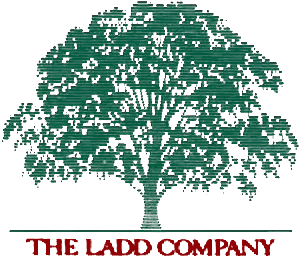
The Ladd Company was an American film production company founded by Alan Ladd Jr., Jay Kanter, and Gareth Wigan in 1979.
CBS Theatrical Films, also as CBS Theatrical Films Group, was the film production branch of the U.S. television network, CBS, which was active from 1979 to 1985.
Robert Rehme is an American film producer whose credits include the films Patriot Games, Clear and Present Danger and The General's Daughter.
Everybody Comes to Rick's is an American play that was bought unproduced by Warner Brothers for a record figure of $20,000. It was adapted for film as Casablanca (1942), starring Humphrey Bogart and Ingrid Bergman. Written by Murray Burnett and Joan Alison in 1940, prior to the United States' entry into World War II, the play was anti-Nazi and pro-French Resistance. The film became an American classic, highly successful and ranked by many as the greatest film ever made.
Mark Rosenberg was an American film producer whose works included The Killing Fields and Presumed Innocent, who was the President of Worldwide Theatrical Production at Warner Bros. in the 1980s.
Ned Stone Tanen was an American film studio executive behind films that included American Graffiti and Animal House.

Jerry Leider is an American producer of both feature films and television programs. He has also worked as a senior executive at studios, television networks and talent agencies.
Joshua Adam Berger CBE is an American-born British business executive and producer in the media and entertainment industry.

Warner Bros. Pictures is an American film production and distribution company owned by the WarnerMedia Studios & Networks Group. Headquartered at the Warner Bros. Studios, Burbank.
References
- 1 2 3 Mika, Shelley. "Producer Robert Shapiro to give talks at Sheldon", Daily Nebraskan , November 11, 1999. Accessed December 10, 2008.
- ↑ Schwartz, Tony. "Warner Bros. Names Robert Daly Chairman; 'Opportunity I Desired' Other Executive Changes", The New York Times , December 2, 1980. Accessed December 10, 2008.
- ↑ Harmetz, Aljean. "SHAPIRO QUITS AT WARNER'S ", The New York Times , July 27, 1983. Accessed December 10, 2008.
- ↑ Harmetz, Aljean. "WARNERS NAMED FILM PRODUCTION PRESIDENT ", The New York Times , July 28, 1983. Accessed December 10, 2008.